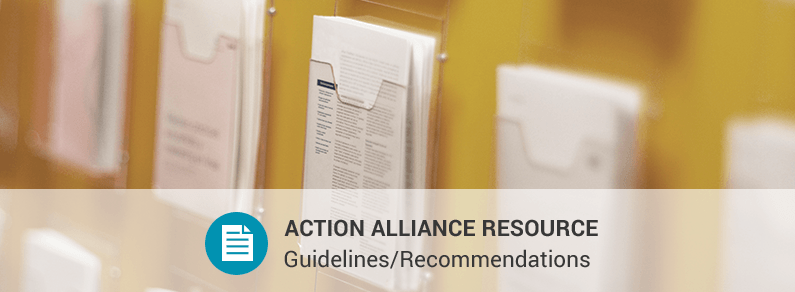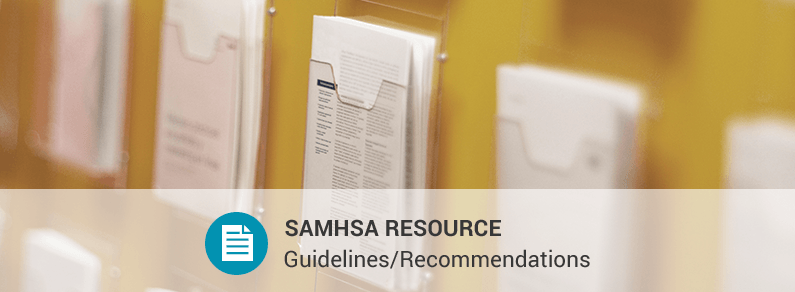Crisis Centers/Services
Crisis centers, such as helplines and hotlines that help callers who are in a suicidal crisis, play an important role in suicide prevention. But crisis services can also be provided in many other settings. Other programs that provide assessment, crisis stabilization, and referral to an appropriate level of ongoing care include mobile crisis teams, walk-in crisis clinics, hospital-based psychiatric emergency services, and peer-based crisis services. These services and systems can be effective and cost saving alternatives to emergency room services and hospitalizations, and can also support safe transitions in care.
Learn More
- See the Recommended Resources below selected by SPRC personnel.
- See our crisis response page to learn more about how to respond effectively to individuals in crisis.
- See All Resources Related to Crisis Centers/Services (below) for a full list of materials, programs, trainings, and other information available from SPRC. Use the filters on the left to narrow your results.
- To learn more about related settings, see our Health Care and Behavioral Health Care pages. For more on other settings and groups, see our Settings and Populations pages.

Filter By:
Recommended Resources

Crisis now: Transforming services is within our reach
This Action Alliance report describes what can be done to improve suicide care in emergency departments and behavioral health crisis care in general.

Person-Centered Care
John Draper challenges traditional ideas about what the “best care” for people at risk of suicide is and champions a transformative perspective.

Resources in behavioral health crisis services
This document provides information on crisis services and provides lists of crisis lines and mobile crisis intervention teams, plus other resources.

Practice guidelines: Core elements for responding to mental health crises
Developed by a diverse expert panel that included individuals with mental illnesses, providers, public officials, and advocates, the guidelines presented here define appropriate responses to mental health crises across various situations and environments.
